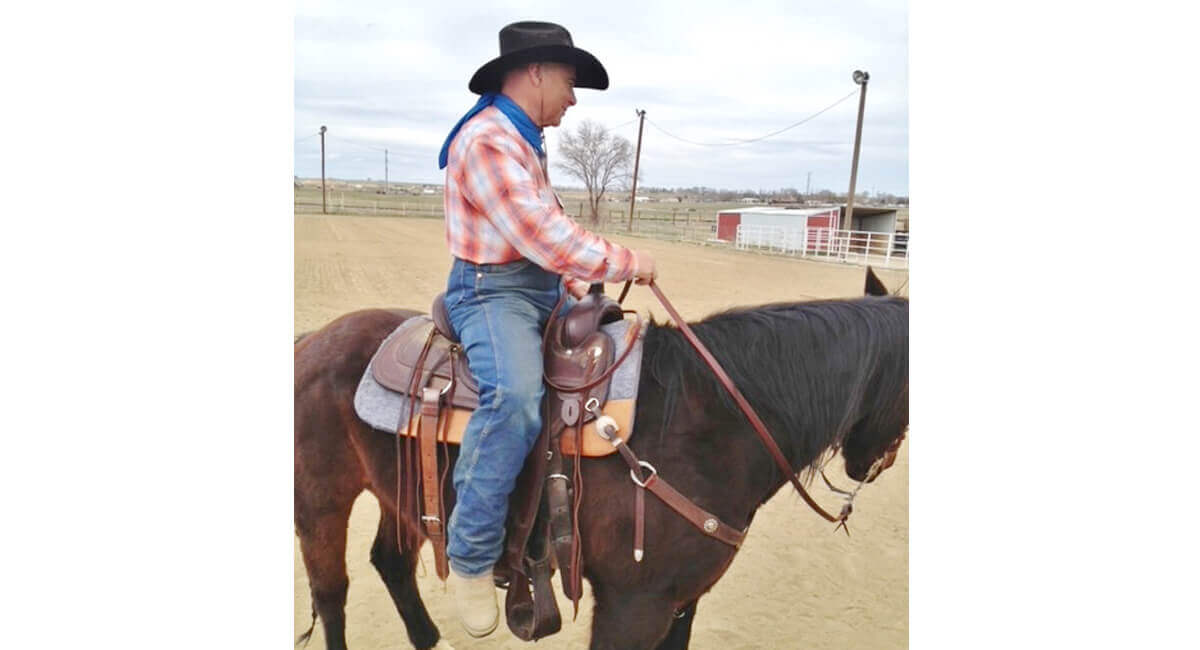What is your name and the name of your business?
Arapahoe Community College Equine Training and Management Program. E—W (E Bar W) Horse Training.
Where are you located?
Arapahoe Community College – Equine
Campus Box 23
3900 South Santa Fe
P.O. Box 9002
Littleton, CO 80160-9002
damian.ficca@arapahoe.edu
arapahoe.edu/equine
Cell: 720-201-0934
Office: 303-797-5722
Facebook: Arapahoe Community College
What equestrian disciplines are you involved in?
I teach and train in the Spanish California/Nevada tradition which emphasizes the welfare of the horse. My mission and that of the ACC Equine Training and Management Program is to educate students in the methods and subtleties of horse training in that centuries-old tradition. This method teaches patience and practice in both the trainer and the horse. In addition to horse training, I teach horse anatomy, equine pharmacology, breeds and breeding, barn and pasture management, hoof care and many other facets of the health and maintenance of horses. Completion of our training program is designed to prepare students for a career in the Equine Industry.
What breeds have you shown or trained?
Over the course of my training career, I have trained nearly all breeds of horses. The Spanish California/Nevada method of training does not limit itself to breeds but is applicable and effective for every breed.
Years in Business?
Over 25 years ago, I was asked to write and develop an equine program suitable for preparing students for a career in the equine industry. First, at Front Range Community College and now at Arapahoe Community College, the Equine Training and Management Program has been offered and I have taught that program since its inception. My farrier and horse training career preceded the Program and I continue both as an adjunct to teaching.
What are your goals for your business?
My goal, and that of the ACC Equine Training and Management Program is to educate students in the methods and subtleties of horse training in the Spanish California/Nevada tradition. This method, which emphasizes the welfare of the horse, teaches patience and practice in both the trainer and the horse. In addition to horse training, I teach horse anatomy, equine pharmacology, breeds and breeding, barn and pasture management, hoof care and many other facets of the health and maintenance of horses. Completion of the classes and/or trainer certification prepares the individual for a career in the Equine Industry. In the horse training realm, the goal of the Spanish California/Nevada teaching tradition is to develop the horse into a quiet and trusted partner with consistent response and demonstrated courage. I have lived that tradition throughout my career, all the while focusing on the welfare of the horse.
Do you have any accomplishments or titles you’re especially proud of?
I measure accomplishments in teaching and training by successes in each student’s grasp of the knowledge and skills required by the Spanish California/Nevada training tradition and by the number of graduates of the Program. Similarly, I measure each horse by their progress in understanding and development toward being a willing and successful partner in whatever discipline their human wishes to pursue.
Are there any affiliations, organizations, or clubs you are involved in?
Member, American Farrier’s Association
Director, Arapahoe Community College Equine Training and Management Advisory Board
Lead Instructor, Arapahoe Community College Equine Training and Management Program
Regular Guest Clinician, Temple Grandin Equine Center
What is your training philosophy?
My training philosophy, and that of the Spanish California/Nevada tradition is not to offer a pre-packaged program for horse training. It is a tradition that is taught through understanding and practice. The training will develop the horse into a trusted companion in its chosen discipline. That discipline can be ranching, trail riding, competition, driving, equine therapy or any direction you wish to take the horse. The tradition is over 2,000 years old and passed on from horsemen who learned by watching horses in the wild. The tradition teaches the mind of the horse, not the human. The welfare of the horse is first and foremost in this horse training tradition.
Training goals?
My primary focus and training goal is to engender these five outcomes in horses I train:
Establish leadership in the partnership.
Develop trust with your equine partner.
Teach response i.e. understanding your instructions and cues.
Encourage quiet.
Foster courage.

The Colorado Horse Source is an independently owned and operated print and online magazine for horse owners and enthusiasts of all breeds and disciplines in Colorado and surrounding area. Our contemporary editorial columns are predominantly written by experts in the region, covering the care, training, keeping and enjoyment of horses, with an eye to the specific concerns in our region.

